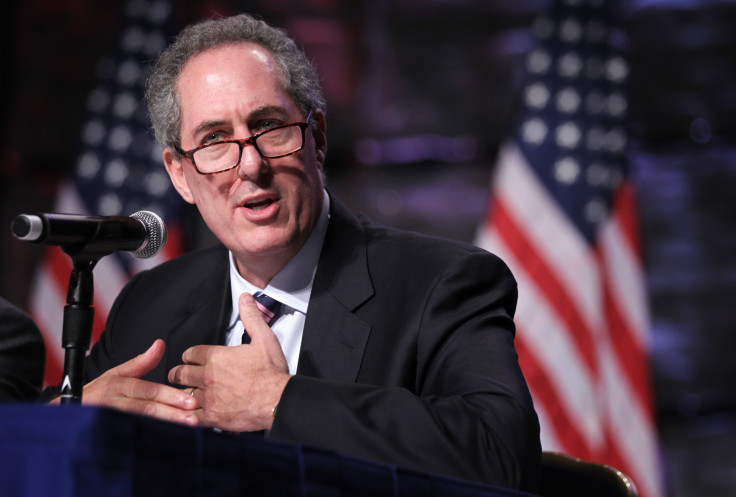Doha Round Negotiations 2015: US Calls To End Global Trade Talks, But Opposition Expected In Nairobi

The Doha Development Round negotiations don't start up again until Tuesday in Nairobi, but the United States is already tired of trying to devise the perfect global trade deal. In a column published Sunday in the Financial Times, U.S. Trade Representative Michael Froman called for an end to the Doha talks, which have been going on for 14 years. He said that although the issues at hand remain important, the way the World Trade Organization has been attempting to fix them is outdated and inefficient.
"If global trade is to drive development and prosperity as strongly this century as it did in the last, we need to write a new chapter for the World Trade Organization that reflects today’s economic realities," Froman said. "It is time for the world to free itself of the strictures of Doha."
Froman's announcement marks the first time the United States has formally proposed scrapping the Doha Round, but he's certainly not the first to debate its future. With new multilateral agreements like the Trans-Pacific Partnership, experts said they expected to see a struggle in Nairobi between developed and developing countries. Depending on who wins, the Doha Round could be abandoned entirely in favor of more modern solutions, which some suggest could slow globalization.
The Doha Round, named for the capital of Qatar, began in 2001 as the latest set of negotiations in the 162-country WTO. The member states wanted primarily to lower trade barriers and come up with rules for policies in areas like agriculture, tariffs, the environment, services and intellectual property. According to the WTO website, harmonizing such policies could add up to $202 billion to the world economy. The negotiations proceeded as a single undertaking, requiring complete agreement for anything to move forward.
But discussion broke down in 2008, when the U.S. sparred with India and China over the specifics of a special safeguard that would let countries increase tariffs -- and protect poor farmers -- if agricultural imports surged. Since then, many countries have split off to pursue regional trade agreements.
That's the basis of Froman's argument. "Two-way deals are working. Regional pacts are working. Groups of countries have struck sectoral deals. Only multilateralism — the attempt to reach a comprehensive global deal — is stuck," he wrote.
Heading into Nairobi, it's unclear what will happen. Total agreement, as is required under single undertaking, looks difficult at best. India is expected to fight for special and differential treatment that gives low-growth, developing nations more time to implement the new rules, the Hindu reported. India and China argue that the U.S. and other "rich countries," like the Europeans and Japan, want to exclude them from the preferential treatment due to their high growth rates.
Overall, India and China, as well as other developing nations, are likely to push back against the U.S. plan to finish the Doha negotiations, according to a blog post from the Center for Global Development. They want to keep the international focus on development, and "even without the Doha label, the agricultural trade and other issues on the table in the Doha Round are not going away," the group noted.
It's been "Weekend at Bernie's" for 10 years with the #Doha Round. Think I got the news it was dead on my car phone. https://t.co/YbOn43i8C3
— Dan Ikenson (@dikenson) December 13, 2015
The developing nations have on their side a group of experts from the United Nations human rights commission, which said in a statement last week that there was "no justification for defaulting." They also may have the support of the director-general of the World Trade Organization, Roberto Azevêdo, who penned an opinion piece of his own for the Wall Street Journal laying out the stakes.
Though bilateral or regional trade deals are easier to reach, Azevêdo said, having a single set of global standards would be more effective. He urged WTO members to be flexible.
"Failure to agree on a package of important measures, especially those prioritized by our poorest members, coupled with disagreement on the future path for WTO negotiations, may leave the organization rudderless," he wrote. "This at a time when rising global economic uncertainty and persistently slow trade growth requires governments to provide direction, clarity and innovative policy prescriptions."
The role of current events can't be understated, with terrorism, the Syrian refugee crisis and China slowdown casting a shadow over global discourse. Larry Elliott, the economics editor for the Guardian, wrote that lack of a Doha agreement could signal the end of the second globalization movement -- and leaders should be wary.
"Those who say history will not repeat itself should pause for thought. There has been a system failure," Elliott wrote. "Everywhere, an extreme form of nationalism is again on the rise."
© Copyright IBTimes 2025. All rights reserved.






















